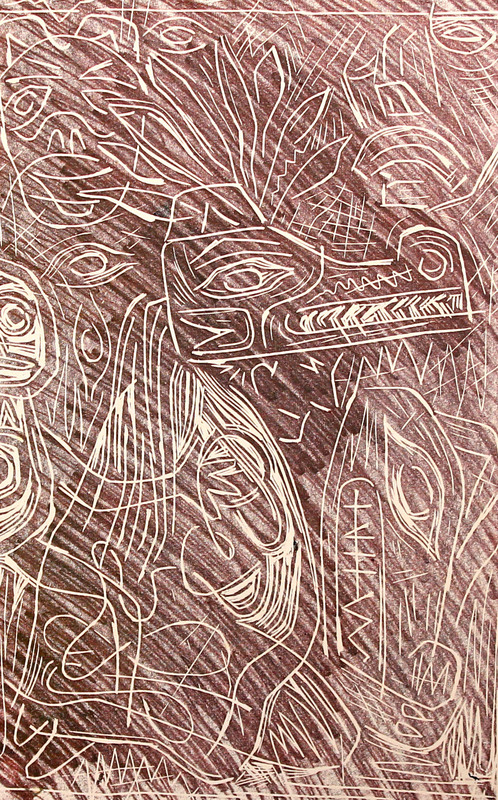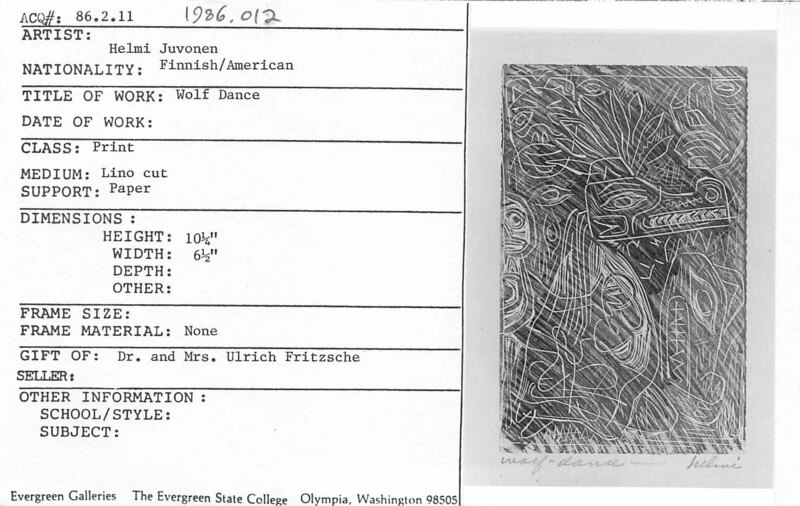-
Title
-
Wolf Dance
-
Creator
-
Helmi Juvonen
-
Artist ID
-
97
-
Description
-
A number of Native-inspired masks scratched into a brown background. Includes a wolf, an armed raven, and some humans.
-
Category of Media
-
Print
-
Media
-
Linocut on paper
-
Accession Number
-
1986.012
-
Location
-
Storage: Library basement, art vault, flat file 3
-
Date Acquired
-
1986
-
Dimensions of Work
-
10.25"X6.5"
-
Frame Type
-
None
-
Donor or Seller
-
Fritzsche
-
Condition Statement
-
10/2022: Good condition. No issues noted at this time.
-
Artist Bio
-
Helmi Dagmar Juvonen, known in her day simply as Helmi, was a prolific artist whose creativity embraced many media - paintings, drawings, prints, ceramics, and ceramics. She was particularly drawn to the ceremonies and arts of Northwest native culture - masks, dances, costumes, and totemic animals. The artist developed a rapport with particular tribes, including the Lummi, Swinomish, Muckleshoot, Makah, and Yakama, who invited her to participate in their rituals. During the most sacred ceremonies, she relinquished her sketchbook and relied on memory for documentation. Helmi also devoted years to studying and drawing Northwest Coast Indian and South Pacific objects from the Washington State Museum, which became the Burke Museum, University of Washington. In later life, the artist was inspired by the book Primitive Art (1927) by anthropologist Franz Boas.
Source: https://www.whatcommuseum.org/virtual_exhibit/universal_exhibit/vex22/index.htm
-
Abstract
-
Juvonen's largest works from the late 1940s through the 1960s are organized laterally and characterized by shallow indeterminate space and "all-overness". She valued and practiced conventional techniques of three-dimensional illusionism through the 1950s; she also developed a range of strategies much closer to graffiti and cartoons. A light or white delineation on a darker ground, which frequently appears in her works, suggests chalk on a blackboard, and vernacular references in her work are commonly associated with the "white writing" identified with Mark Tobey and Morris Graves. Juvonen introduces into her work words and phrases, a variety of human figures and faces, architectural elements, and religious and eclectic symbols from diverse cultures.
Source: https://en.wikipedia.org/wiki/Helmi_Juvonen



